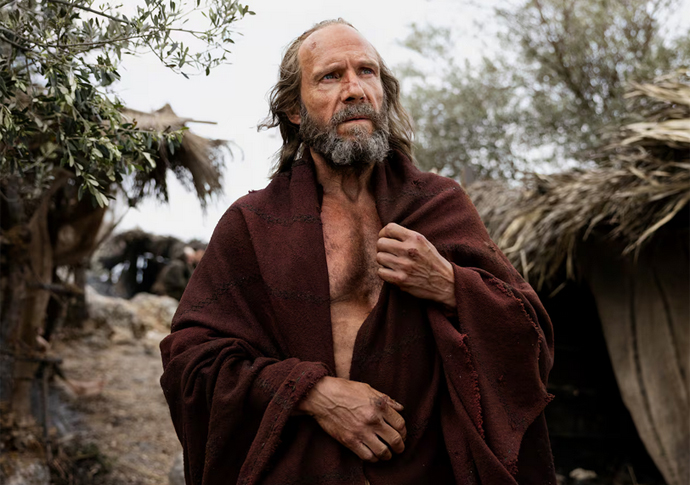The Return: Greek myth is remade for a modern audience
Ralph Fiennes and Juliette Binoche star in thought-provoking slow-burner
Thursday, 10th April 2025 — By Dan Carrier

Ralph Fiennes as Odysseus in The Return [Fabio Zayed/Maila Iacovelli/Modern Films]
THE RETURN
Directed by Uberto Pasolini
Certificate: 15
☆☆☆
IF a film or book brings a Greek myth alive for a modern audience, it must be welcome: anything that acts as a gateway to the magnificent tales, full of lessons that speak to the human condition, is a plus in this mixed up, messed up world we live in today.
So while this Ralph Fiennes / Juliette Binoche slow burner of a tale lacks the impact of their English Patient collaboration (and let’s face it, Anthony Minghella’s masterpiece is pretty hard to top in terms of storyline and performance) there is something intrinsically thought-provoking and important.
This story of the return of Odysseus from the Trojan wars may not have wide appeal, but it is carefully made and feels like it should be the first of a series.
We meet Odysseus (Fiennes) as he is washed up in a cove on the island of Ithaca.
He has been away fighting in the Trojan wars and has returned a deeply troubled man: rather than the swish of a sword and the thump of a muscly chest, this returning king is suffering from post-traumatic stress. And no wonder – battles of 2,000 years ago featured gory hand-to-hand combat. Stylised heroes surely did not exist. As Odysseus says when asked about the siege of Troy: “We burnt it to the ground and then doused the flames in blood.”
His Queen Penelope (Binoche) has been awaiting her husband’s return, and her courtiers are getting restive.
They claim he must be dead and she should take a new husband and reinvigorate the island kingdom. She will have none of it, and her son Telemachus (Charlie Plummer) is threatened by his mother’s suitors.
Penelope says she will marry once she has finished weaving her father-in-law’s funeral shroud – a job she hopes will never finish, as she sneaks back to her loom each night and unpicks the day’s work.
We watch as Odyseus struggles with the violence he has inflicted and seen, and does not reveal his true identity as he cases the situation. Dressed as a beggar, he is at first unrecognisable. But slowly, as the tale unfolds, key characters release the king has returned.
Will he manage to regain what was once his – and what has the experience of such a long absence had on his relations with his family and people?
Fiennes and Binoche manage to keep these questions interesting in the face of some wonderfully hammy supporting acts.